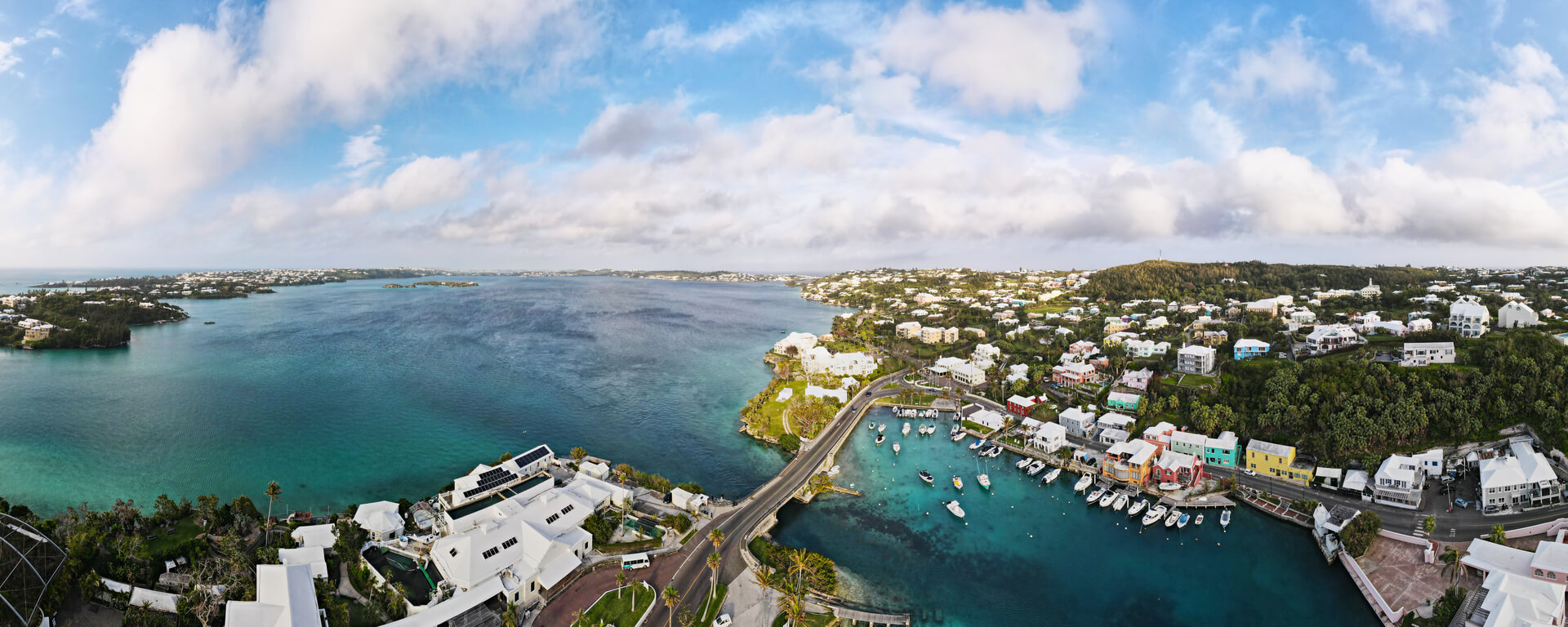Weather and Climate in Bermuda
Bermuda has a subtropical climate that remains mild largely all year round. Temperatures do not generally rise above 30°C in the summer, and in the winter, tend to not drop below 15°C making the climate stable and enjoyable all year round.
However, given Bermuda’s location, average wind direction and proximity to the Gulf Stream means that it is humid, almost subtropical at times. For expats used to the dry, wet climate of the UK, it may initially seem like a shock, but the climate is easy to adapt to.
The only downside to living in a tropical area is Bermuda’s hurricane belt, which have struck the islands more commonly in recent years. Occurring between June to November, the hurricane season is alerted through Bermuda’s weather service.
British Representatives in Bermuda
N.B. Bermuda has no official consular or embassy, instead UK citizens are recommended to contact the local relevant authorities.
| Address: | Governor’s Office Hamilton 11 Langton Hill Pembroke H.M 13 Bermuda |
| Phone: | +1 441 292-3600 (24/7 line) |
| Email: | [email protected] |
| Website: | https://www.gov.bm/ |
| Office hours: | Currently the office is fully remote, but teams are on the phone 24/7 for emergency assistance. Otherwise, contact through the website is recommended. |
Emergency Services Contact Information in Bermuda
| Contact Number | |
| All Emergencies | 911 |
| Emergency Broadcast Station | FM 100.1 MHz |
Health in Bermuda
Whilst there are no mandatory vaccination requirements to get into Bermuda, it is recommended to ensure you have the Hepatitis A, Hepatitis B, Typhoid and Rabies vaccinations. However, before you travel it is best to check for any up-to-date health advice.
You will also need a health insurance policy, as there is no government funded health insurance scheme, and costs in Bermuda are similar to that of the US. If you have a serious medical condition, you may want to consider an extensive policy that covers you in multiple countries, as Bermuda has limited hospitals covering several, but not all, specialities. Instead, patients are likely to be transferred to a US hospital in serious cases.
Health insurance is covered by employers, but if you are not expatriating for work reasons, you will need to purchase private health insurance.
Driving in Bermuda
Bermuda has no hire cars available, and only in recent years have added electric buggies, such as the Renault Twizzy, for visitor use. Due to the size of the roads, and the size of the islands itself, cars have strict size, weight, maximum engine capacity, and speed limits.
Households are only allowed one car, unless exceptional circumstances apply. Car use is highly taxed and the cost to run a car is expensive because of tax, licensing, and the extremely high prices of petrol.
Due to an increasingly high number of cars in the country and high crash rate, the Bermudian government is trying to encourage people to use public transport through a system of buses.
While you can drive while in Bermuda, it can be costly, and it may be worth waiting for a few months after moving to see if you wish to drive in Bermuda.
Getting your Driving Licence in Bermuda
For car licences, you must first complete an application, which includes a doctor certifying your ability to drive. If you are a new resident, you must prove that you will be in Bermuda for 30 days or longer.
Then, you must pass an exam, which includes rules of the road. This starts at $49 for a car, and if you pass, you can purchase a learner’s permit.
After passing the exam, you must then book a driving test which covers the basics of driving. Once this is passed, you can get your licence and it will last for up to 10 years.
Driving Over the Age of 65 in Bermuda
Once you hit 65 years old, your licence will expire, and you must take a new test every five years until your 75th birthday. Upon your 75th birthday, you will have to renew your licence every two years.
Mutual Recognition of Licences in Bermuda
Bermuda is not part of the Geneva convention of recognition of driving licences, and as such a UK licence cannot be used to in Bermuda. For renting an electric buggy, insurance and a short licence is issued by the rental company.
Legal Requirements for Driving in Bermuda
The country has a maximum speed limit of 21 mph on the island, aside from the capital city of Hamilton, which has a limit of 15 mph, hence the requirements on maximum engine capacity.
As well as strict laws on driving a four wheeled motor vehicle, there are also laws on motorcycle and bicycle use, including curfews for under 18-year-olds cycling. In Bermuda, you must pass a bicycle test, and obtain a licence and insurance to cycle around.


